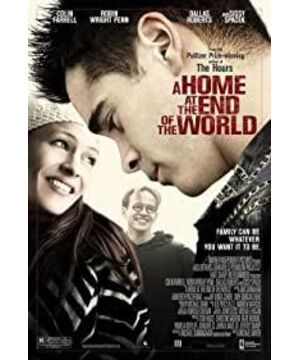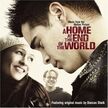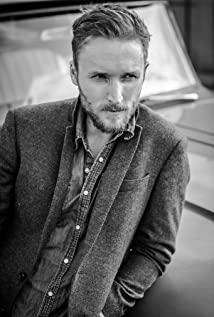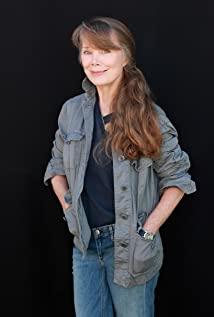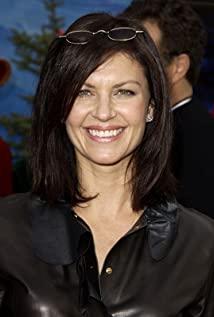With the increasing openness of society, there are more and more movies that reflect the subject of homosexuality, but whether it is the "Philadelphia Story" that reflects homosexual discrimination and the fate of not being blessed, it simply wants to show that the same-sex taboos and heterosexuals have the same "Wild Reed" and "the latter days" of the right to love, or use the same-sex relationship to carry notions such as taboo, rebellion, despair, collapse, etc., such as "Break in Venice", or explore the moral and ethical conflict between homosexuality and traditional society "The Wedding Banquet", or other out of satisfying curiosity and curiosity about the heterogeneous world, regardless of the theme, the homosexuality in these films appears in a certain form of hostility to heterosexuality, and in many cases they have the same The same pattern of heterosexuality, the difference is that this kind of relationship occurs between the same sex. But when people face the emotions between the two men, Bobby and Jonathan, it is difficult to give a definite answer.
This film does not try to make a clear definition and classification of human emotions like other films involving sensitive issues of sexual orientation. The director collectively referred to this feeling as "love", but did not intend to divide it into "love", "friendship", "maternal love", etc. This is a great recognition for audiences who are accustomed to clear realistic ethics and emotions. Know the impact, and be confused and thinking about it. The director seems to want to convey the idea that there are many ways of love, but their essence is the same. To define and regulate love will go against the nature of love in people's minds. The emotions between the three protagonists seem to be a mess. Homosexuality, heterosexuality, friendship and love are contradictions that the ethical structure of the secular society is difficult to resolve, but in the end, they follow their inner desires and form a violation that is maintained by love. A common sense family of four. In the film, gay Jonathan can love Claire and hope to have a child with her, or he can love Bobby without having sexual contact with her. Claire can love both Jonathan and Bobby at the same time, while Bobby loves Claire but cannot leave Bobby. Through these, the director seems to ask the audience a question: Is love spiritual or physical, and is it related to sexuality? Where is the boundary between friendship and love? Is it immoral for a person to love two people at the same time and want to be with them? etc.
The director did not put too much pen and ink on the sensitivity and taboo of homosexuality, thinking that this is just a choice of sexual orientation or sexual addiction, and has nothing to do with love. Although in the "taboo game" played by the two adolescents, Jonathan is the active party. After the reunion, Jonathan once hoped to strengthen the bond between the two through homosexuality. However, it was only hope that Bobby would not leave him alone and continue to maintain the love and dependence between the two, so he agreed to the crazy mode of getting along. This is a character that separates sex and love. His body moves between different people, but he always maintains a spiritual attachment to the two people he loves most. As a heterosexual Bobby, he can't get rid of Jonathan mentally, no matter what Jonathan represents to him, but since the two met, Bobby has become accustomed to Jonathan's existence and obtains spiritual stability from him. What really maintains their relationship is the spiritual meaning of each other to each other. Just as Claire said to Jonathan in the film: "But Bobby is the love of your life." Jonathan replied: "It's not that simple."
The friendship between the two boys, after a long period of precipitation, is beyond a few words. For Jonathan, Bobby was the "magician" enlightenment in his teenage years and his only partner. As a boring boy who wears braces and often looks cramped and panic, he can only dig his head and eat books, without friends, he can't communicate with his family freely. It was Bobby who took the initiative to intervene in his life, became his playmate, smoked and danced with him, listened to pop music, drove his father’s car and kissed each other in the middle of the night, showing him how to get to know the humans behind through the mask. With his gentle and fragile nature, tell him, "If you have something wrong, just tell your parents, I tried my best." "This big world is beautiful and noisy, and everything can happen." "Everything is very easy. Okay, little brother. Your family loves you, and I love you too. There is nothing to be afraid of." And it prompted him to finally make the decision to leave this small town and visit this beautiful world. For Jonathan, who left his hometown of Cleveland and became a homosexual, Bobby was the only connection between him and his hometown family and his teenage years. He was another brother who took care of his parents instead of him. He was a better person than his parents. Relatives who confide in their concerns. It was Bobby who eased Jonathan's loneliness and wandering feeling of being in a big city and being a gay, and the rootlessness and panic of being "extremely"-it is also this kind of loneliness that made him hope to have a baby with his close friend Claire. It was Bobby who guided him to this beautiful world and gave him a sense of belonging to the family instead of his parents. He said to the lost conscious and redundant Jonathan: "There is nothing wrong with the kiss between brothers.", and gave up Claire and his daughter. , Accompany Jonathan through his last life alone. To Bobby, Jonathan's feelings are complicated, he has admiration, admiration, attachment and gratitude, and at the same time he is dissatisfied with his deprivation of his parents' love and Claire's children.
As for Jonathan, Bobby turned out to be a little empathetic. For Jonathan, it was an eternal pain in his heart to witness the unexpected death of his brother, the rebellious and romantic boy who worshipped attachment many years ago. When I first saw Jonathan, Bobby also noticed his hair that was similar to his brother's. Later, he put his brother's jacket on and took him to the cemetery where his brother took him. Like his brother, he told him what his brother told him many years ago. The same thing. Jonathan not only gave the feelings of his brothers and close friends and relatives, but also the warmth of his parents and family who had lost their loved ones, giving him a sense of home and enjoying the sweetness and responsibility of home. It is precisely because of this that Bobby later did not want and cannot bear to leave Jonathan behind. As for Claire, she originally thought she could love two people at the same time and accept this family model, but in the end she left. She thought she could understand and accept the feelings between Jonathan and Bobby and herself, but in the end she could only Understand that it is unacceptable. Although she is such a rebellious and open woman, she still cannot get rid of her heart's desire for a plain traditional family life, and her yearning for another kind of normal life, rather than this kind of family that has no legal or secular meaning. She said: Maybe, I'm not so unusual, maybe it's just because of my hair. In the end, only Jonathan and Bobby stayed, in a small orange-lighted hut in a small icy town. No one can deny the love that exists between them. No matter what name defines it, it is warm. The question is whether there is such a space to maintain and consolidate in real life? This unreasonable mode of getting along finally failed, but it is undoubtedly a questioning of the crude definitions of traditional homosexuality and heterosexuality, and it is also an impact and challenge to the traditional family ethics.
Freedom and belonging-leaving, hometown and family
Whether it is a traditional legal family or an anti-traditional "Tianya Jiayuan" in the film, the director holds an attitude of respect. This is embodied in the protagonist Bobby. Bobby's elder brother was a beautiful boy with a spirit of rebellion and freedom. He was later killed by accidentally breaking the glass at a party. This had a great impact on Bobby's subsequent character formation. He taught Bobby to experience this beautiful and noisy world with a gentle and free heart, without fear. The continuous deaths of his family made him full of longing for family life, tender feelings and sense of belonging, and his multiple contacts with death made him feel compassion and detachment towards life. "Like walking in the dark" "At the same time, it is like being alive and dead, just like hanging in the middle. The living are dreaming, and the dead are where they should be. And here I am, In the darkness and silence.” The emotional loss caused by the premature loss of a loved one and the lost family life made him particularly cherish. For this reason, he loved and indulged Jonathan like his younger brother, taught Jonathan’s mother to smoke and dance to dispel the beautiful and lonely thoughts in his heart, gave up the desire to visit the world and stayed at Jonathan’s home in Cleveland. And all his dreams are to build a happy home and be with the people he loves. He likes Claire not only because of her sexy rebellion, but also because of the gentleness of women in a perfect family and the children who continue to be descended from. He lived like a saint, with long hippie-style hair, carrying a big bag of records with him, relying on his own hands, firmly defending his homeland, guarding his brothers and women. In him, concentrate the power of the fatherhood of the traditional family. Although it was also because of this, it made him less human and more divine, showing symbolism.
In contrast to him is Jonathan's mother, a warm and kind traditional mother who buried passion and romance in order to take care of the family life, and is also the guardian of the family. Comparing the two types of families before and after, the former is traditionally legal and stable but has to be compensated for freedom, while the latter is free and open but has no legal protection. The only difference is that maintaining it consumes love and energy. Jonathan’s mother said to Claire: “I think you are brave. I think when you were this old, you got married and got married. There was nothing else.” “But I think your situation is much better. Really. Yes, once you get everything you want, then you will find yourself in a corner of the suburbs, but that’s fine, I mean, it’s not bad, but the world around you seems to be slowly changing Young. Most women don’t know what their future will be like.” This is also the confusion of the older generation of families, especially those who come out of a traditional family that is closed and backward. Even Claire’s father is also confused. Vaguely reveals the depression of staying in one place for a lifetime, "Do you like Cleveland?" "Here, I can breathe some fresh air, and your mother has also learned how to make margaritas, who hopes Take it in the desert for a lifetime." "Yes, no one wants to stay in any place for a lifetime." "This is too esoteric." Facing the free life of the younger generation, they are envious. However, these young people who have come out are not completely trouble-free. They still retain their attachment to family, homeland and traditional values in their bones. They are also eager to find a spiritual home in this overly free world and build a home. Harbour. As Jonathan’s mother said, the best is what you can’t get. At the end of the film, Jonathan and Bobby stood in the snow and ice, holding the casket and saying to their father: "No matter what, we are here. This is our place. It's your place too." Even though they are far away from their homeland and after so many twists and turns, these children who wanted to leave at the beginning have built their own home at the end of this world, which is as warm as the one in Arizona.
other
From the beginning of the film, there were scenes of sex. The girl jumped in from the window and had sex with the boy. The boy told his 9-year-old brother that you shouldn’t be a virgin anymore. Brightly colored jackets and wide-leg pants, smoking, sad records, dance halls Crazy twisting of "airplane heads", drug use... This film is full of American pop culture in the 70s and 80s. Young people are bohemian, advocating freedom and contempt for tradition, smoking marijuana and sabotaging the streets to participate in parades, worshiping music, books, and philosophy. Wait, but the movie didn't overstate the violent side. In this small town, everything is peaceful, and it is sensational to persuade mom to smoke and dance. When Jonathan arrived in New York, he still combed his hippie head, loved music, insisted on faith and love, and remained a virgin in the trend of sexual liberation. As for Jonathan and Claire, they have obviously suffered from such excessive freedom. Jonathan had fun everywhere, and at one time thought he could be the kind of person who could get tattoos, and eventually got AIDS accidentally. Claire is married to a sadistic drug addict, because he is a masochist who admires drug addicts. These are all known from the narratives of Jonathan and Claire, and they are both deeply influenced by the popular thoughts of the times. But Bobby is different. He is a liberal, with traditional poetic and philosophical thinking, so he maintains soberness and innocence in the pursuit of degenerate and rebellious culture. This image may be the ideal personality in the director's mind, a sober liberal full of traditional qualities, from which we can also see the director's reflection and attitude towards that period of culture. As repeatedly emphasized in the film: "The big world is beautiful and noisy, everything can happen." So no matter how the world changes, we must also smile peacefully and tolerately accept the beauty and noise that this big world bestows, and enjoy the vastness of the world. And the richness of life, and not let certain prejudices be blinded.
The film adopts a wide screen, and the scenery changing in four o'clock is very beautiful. Among them, the scene of Little Bobby in the cemetery is particularly commendable. The cemetery is dizzy and clear in Little Bobby’s eyes. Little Bobby gradually soars into the air (I suspect that it was caused by taking a slight psychedelic drug) , Let the film add romance and fairy tale color beyond realism. In addition, the soundtrack of the film is also very exciting. According to the situation, many soothing nostalgic old songs from Europe and the United States are interspersed, which coincides with the characteristics of the film's era and also helps express expressions.
View more about A Home at the End of the World reviews


